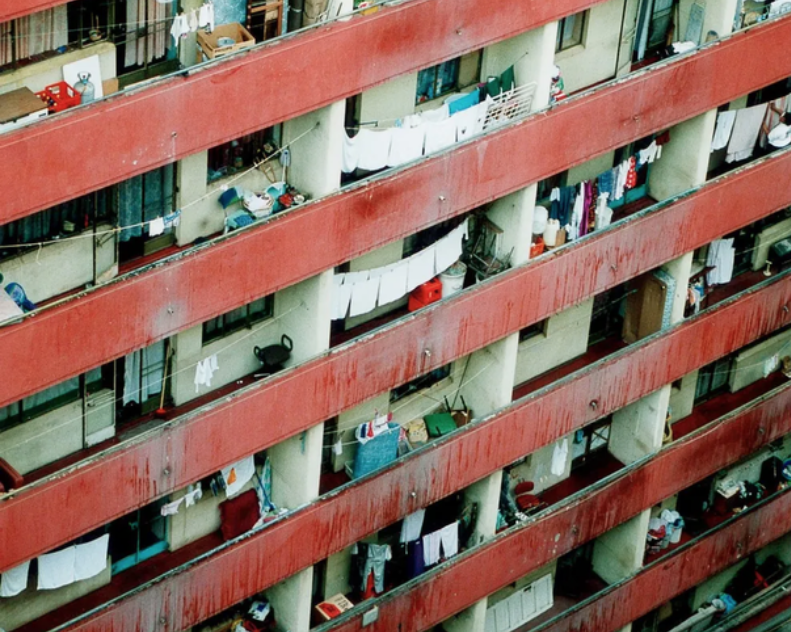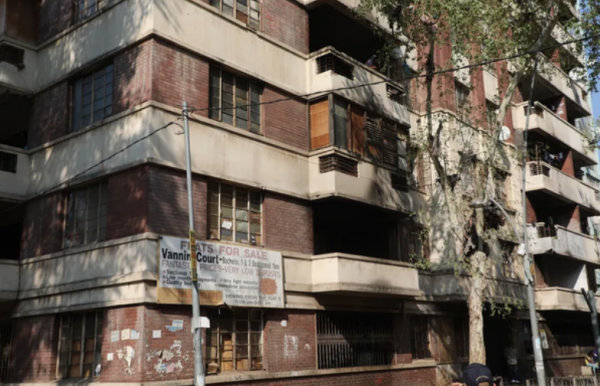411
Johannesburg’s Property Market Crisis: A City in Decline

Once hailed as Africa’s economic powerhouse, Johannesburg now grapples with an unprecedented crisis. The city’s residential property market has stagnated, with prices frozen at 2010 levels. This alarming trend stems from deteriorating infrastructure, rampant crime, and high unemployment rates.
The State of the CBD: A Shadow of Its Former Glory
The heart of the city, the Central Business District (CBD), is plagued by derelict buildings, many of which have been hijacked by criminal gangs and occupied by undocumented foreign nationals. These structures, once symbols of prosperity, now epitomize urban decay. Residents live in overcrowded, squalid conditions, often lacking basic services like sanitation and electricity.
The human cost of this decline is stark. Informal settlements continue to proliferate, reflecting the city’s deepening housing crisis. Families like that of Muyahabo Chitanga, a Zimbabwean mother of seven, endure unimaginable hardships. Chitanga, who resides in a hijacked building, pays exorbitant rent while struggling to access a basic amenity as essential as a toilet.
“I have to escort my young children to a nearby garage to use the toilet, paying R2 each time,” she shared. “Being unemployed, even this small amount becomes a daily burden.”

Picture: Timonthy Barnard
The Ripple Effect: Economic and Social Fallout
The decline in Johannesburg’s property market has had far-reaching consequences. The lack of investment in residential properties mirrors a broader economic downturn. Businesses and individuals are relocating, leaving the city with declining economic growth and increasing social challenges.
Property mogul Sam Mathebula attributes this crisis to years of neglect. “The city’s decline is the result of poor governance, corruption, and a failure to invest in critical infrastructure,” he said. “Without immediate and decisive action, Johannesburg’s downward spiral will continue.”
According to the city’s Housing Department, Johannesburg requires an additional 10,000 rooms or rental units to address its housing shortage. The cost of such an undertaking would stretch the city’s already limited resources to the breaking point.
With over 600 hijacked buildings in the CBD and an influx of thousands of migrants each month, the housing crisis continues to worsen. Iconic structures like the Carlton Centre, once a bustling hub of commerce and culture, now stand as symbols of the city’s decay.
Efforts to address Johannesburg’s decline have been hampered by unstable governance and a lack of clear strategy. Mayor Dada Morero has yet to outline a definitive plan to combat the city’s multifaceted challenges, leaving residents and investors uncertain about the future.
Johannesburg’s transformation from the “City of Gold” to a shadow of its former self serves as a stark warning of the dangers of mismanagement and neglect. To reclaim its status as Africa’s economic hub, the city must urgently address the root causes of its decline: crime, failing infrastructure, and the housing crisis.
Johannesburg’s residents, like Chitanga, continue to bear the brunt of this crisis. Their resilience and daily struggles highlight the urgency of restoring hope and stability to this once-thriving metropolis.
Follow Joburg ETC on Facebook, Twitter and Instagram
For more News in Johannesburg, visit joburgetc.com















